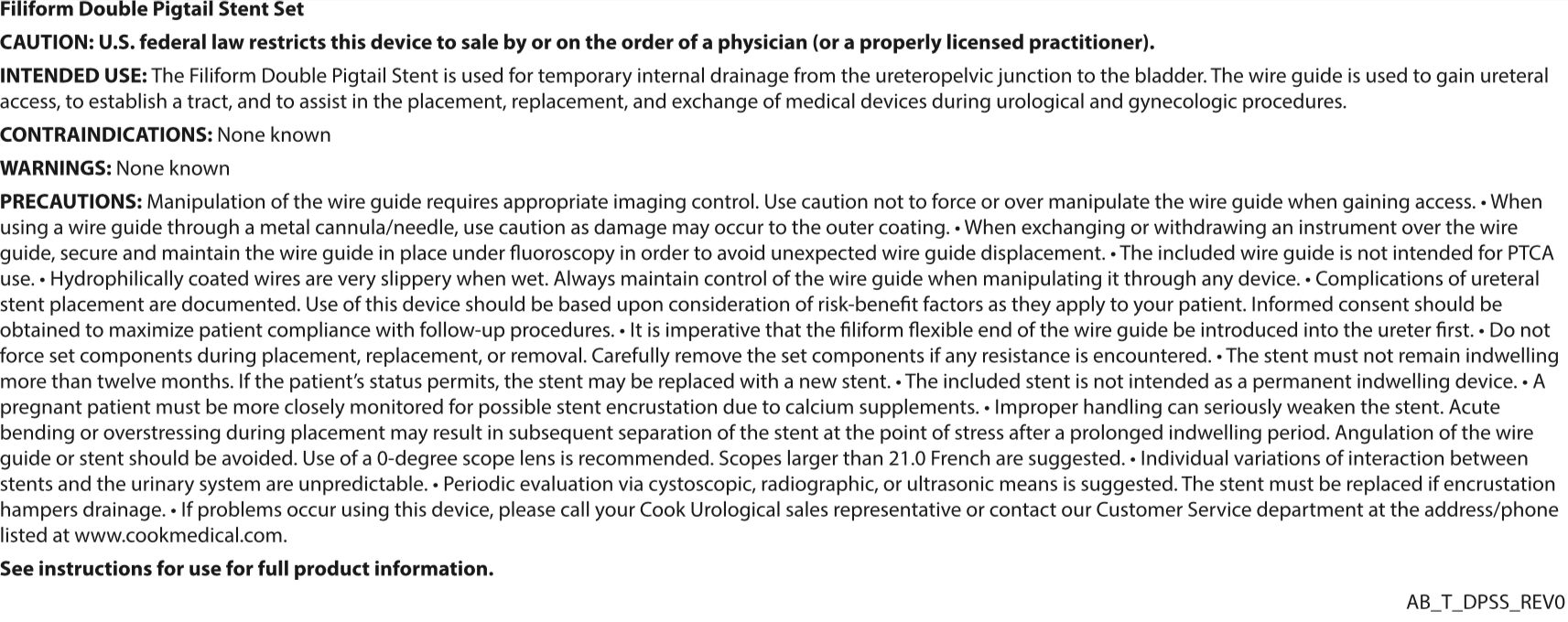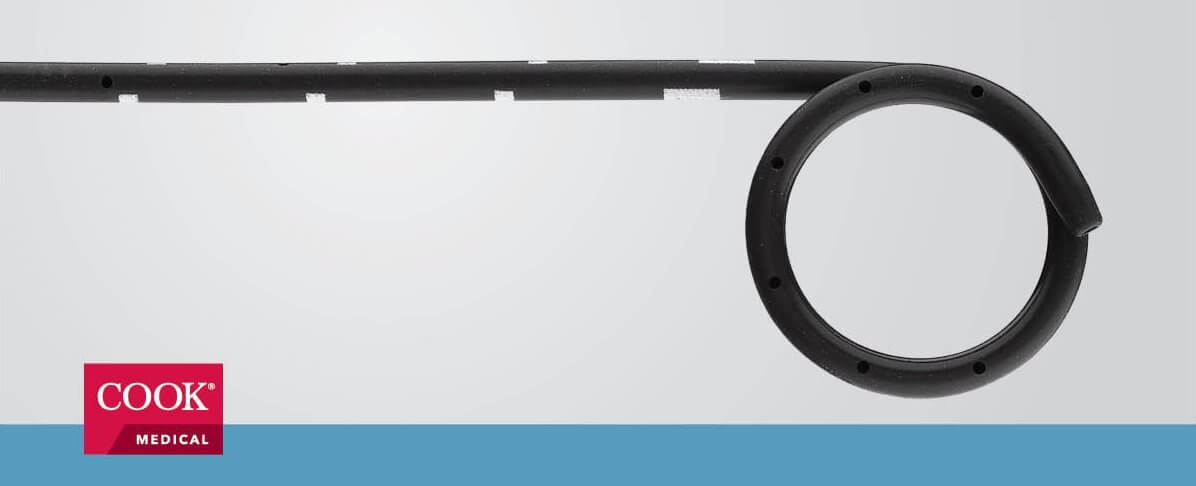Bloomington, Ind. – A study recently published in BMC Urology compared Cook Medical’s Black Silicone Filiform Double Pigtail Ureteral Stent Set to a traditional polyurethane ureteral stent and found that on two separate patient surveys, the black silicone stent was less painful. 1
The study, conducted at the Saint Petersburg State Medical University in Russia, involved 50 patients. The control group received a traditional polyurethane ureteral stent. The second group received Cook Medical’s silicone ureteral stents. As part of the study, participants were asked to rate their pain two weeks prior to stent removal and again immediately prior to stent removal. During both surveys, patients who were treated with the black silicone stent reported lower pain scores.
The study points out that even though there are approximately 92,000 ureteral stents placed in patients annually in the United States,2 80% of patients experience symptoms from the stent placement procedure, such as pain, that diminish quality of life.3 This study provides valuable insight into how physicians can improve the patient experience during ureteral stent placement and identifies the need for more research to be done on the subject.
“Patient experience is an essential part of Cook Medical’s patient-first mission,” said Rob Faulkner, global director of Cook’s Urology specialty. “We want patients to not only heal faster, but also be more comfortable in the process. We look forward to continue innovating products like these ureteral stents that can offer our patients more options.”
Nariman Gadzhiev is a paid consultant of Cook Medical.
Cook Medical provided no support for this study.
About Cook Medical
Since 1963, Cook Medical has worked closely with physicians to develop technologies that eliminate the need for open surgery. Today we are combining medical devices, biologic materials and cellular therapies to help the world’s healthcare systems deliver better outcomes more efficiently. We have always remained family owned so that we have the freedom to focus on what we care about: our patients, our employees and our communities. Find out more at CookMedical.com, and for the latest news, follow us on Twitter, Facebook and LinkedIn.
1. Gadzhiev N, Gorelov D, Malkhasyan V, et al. Comparison of silicone versus polyurethane ureteral stents: a prospective controlled study. BMC Urology. 2020;20(1):10.
2. Donahue RP, Stamm AW, Gibbons RP, et al. Evolution of the ureteral stent: the pivotal role of the Gibbons ureteral catheter. Urology. 2018;115:3–7.
3. Joshi HB, Okeke A, Newns N, et al. Characterization of urinary symptoms in patients with ureteral stents. Urology. 2002;59(4):511–516.

